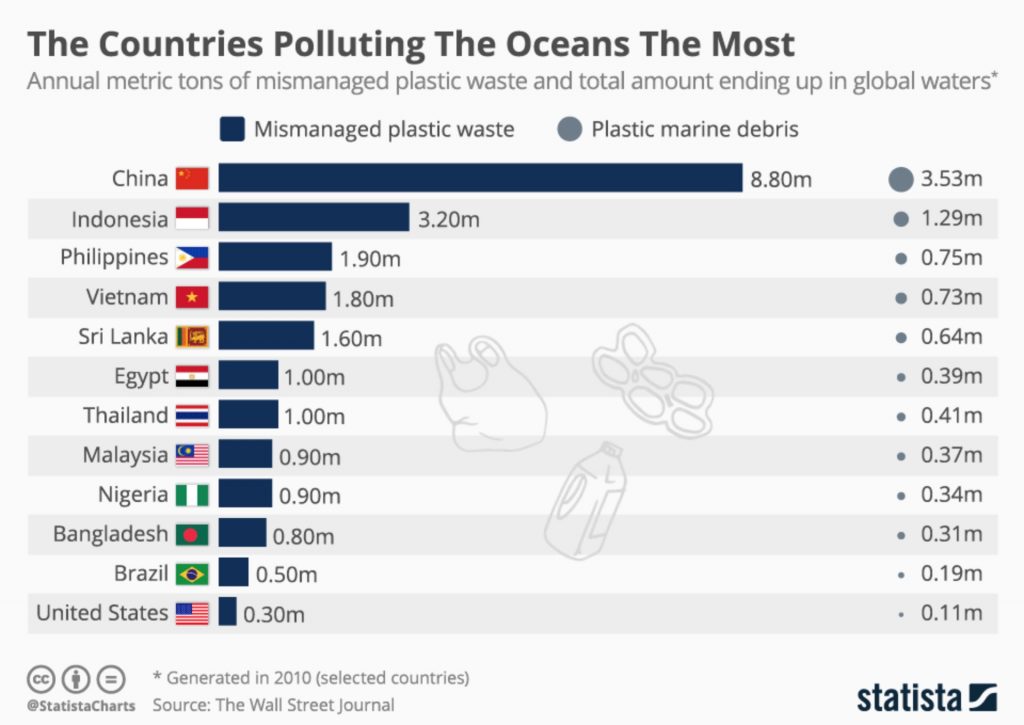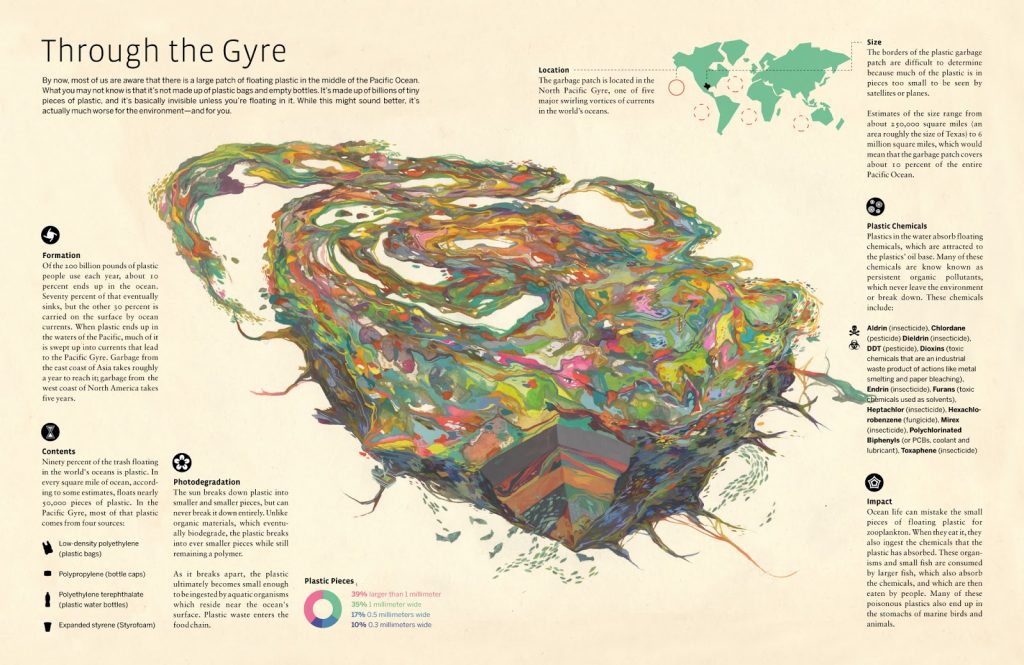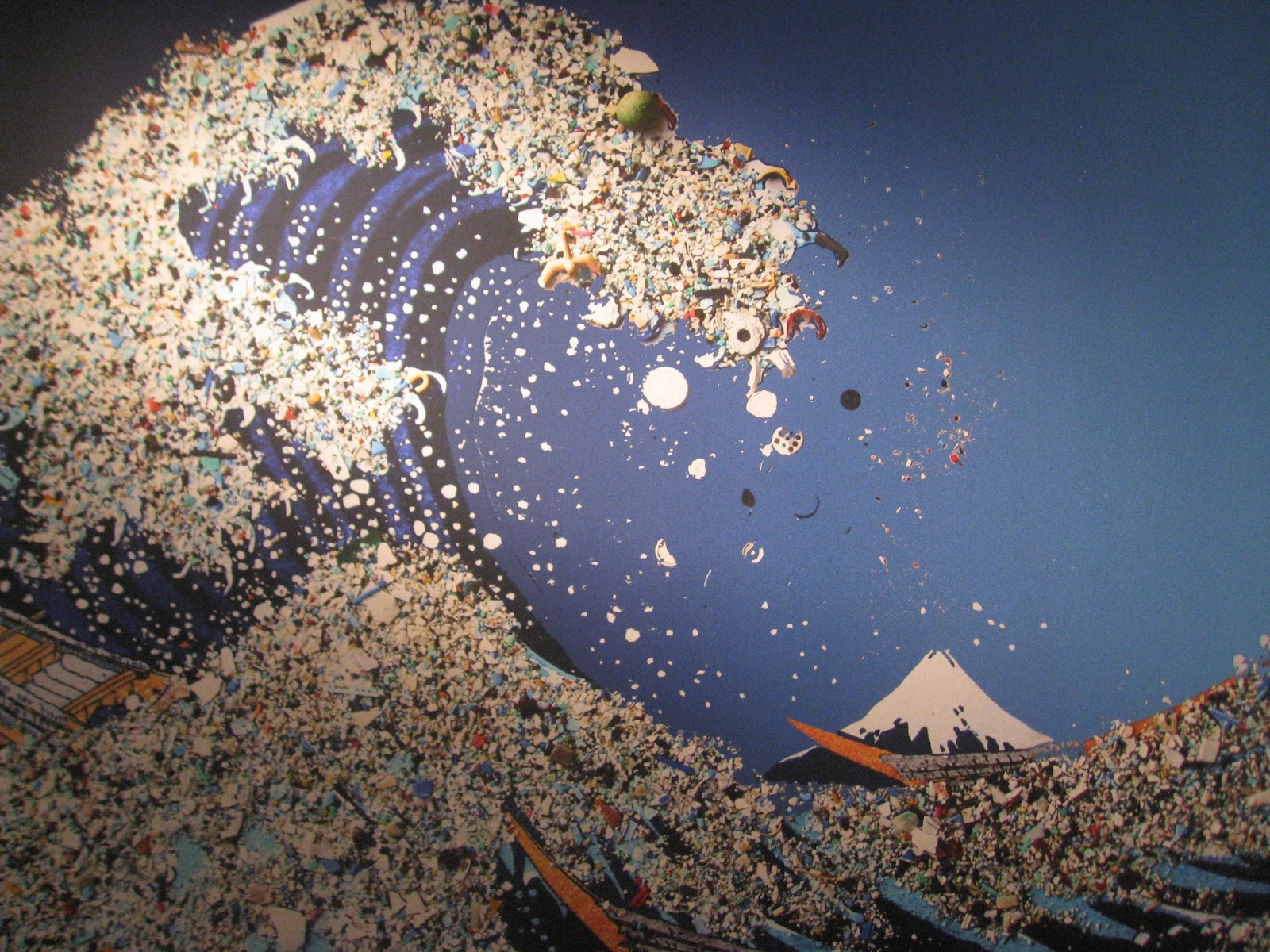Pollution dominates the world’s oceans and these bodies of water are in a very precarious situation along with the marine life in them. Undeniably, plastic pollution contributes the most harm. Plastics may have made modern life easier to the detriment of the planet.
There are around 8 million metric tons of garbage swirling in the ocean and these ten countries are the top contributors of plastic waste in our waters:

China, Indonesia and the Philippines are the top three contributors with most of their waste being mismanaged ending up in the oceans. If there’s anything common with these countries, bodies of water are near them. This comes as no surprise. The friends of the oceans are close, but so are its enemies.
While most of these countries are in Asia, the majority of them are also near the Great Pacific Garbage Patch.
What is the Great Pacific Garbage Patch?
The Great Pacific Garbage Patch is the largest of the five zones of plastic accumulation in the world. The ocean currents cause the accumulation of the trash on certain zones. It is in the North Pacific Ocean, somewhere between Hawaii and California. It is constantly moving, though.
From our partners:

It covers an estimated surface area of 1.6 million square kilometres. Imagine a vortex of plastic waste twice the size of Texas. Yes, it’s that huge.
How Does it Affect Us?
When the plastics in this vortex degrade, they can be mistaken for food by marine life. A mapping of the patch revealed that large debris such as fishing nets constitutes the garbage. These along with millions of other swirling plastics get broken into dangerously small pieces and microplastics which ends being ingested by marine animals. Some marine animals are also entangled in the patch. This affects not only aquatic life. Humans, too.
It affects the global economy since the patch is detrimental to the fishing industry. To make things worse, we end up eating the chemicals the fish ingest once we eat them. A recent study shows that we humans are ingesting an average of 5 grams of plastic every week, that’s roughly the size of a credit card.
What Can We Do?
While this is a monster we have created collectively, no one seems to take responsibility.
The world needs us now, more than ever. We need to actively reduce our use of plastics. Participating in campaigns and spreading awareness is also important. This will pressure businesses to switch to sustainable practices. Each of us can contribute in our own small steps.
It’s time to make it clear to our leaders that protecting the world’s oceans is everyone’s business.













